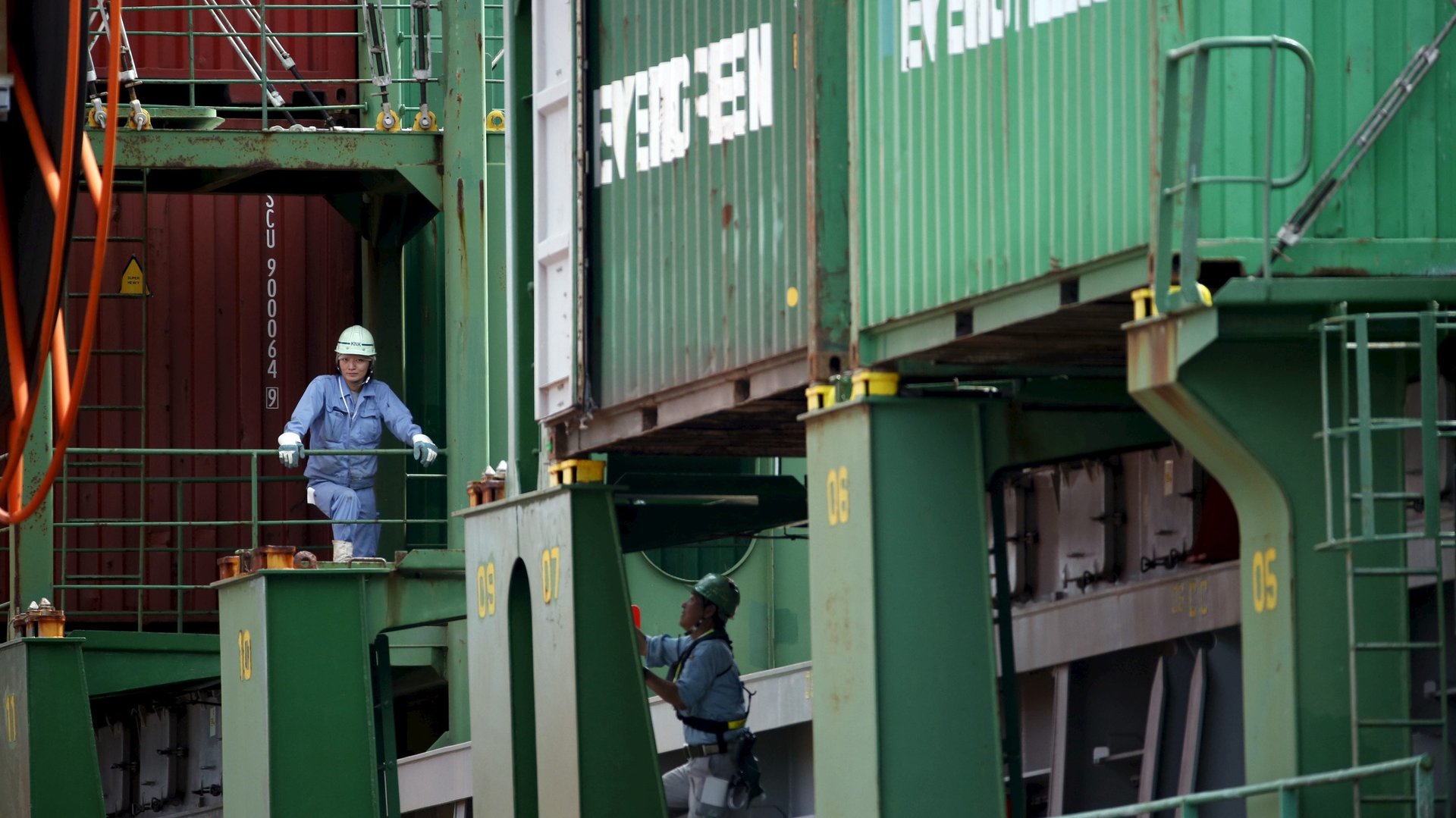Shipping lines are paying workers bonuses of more than three years’ salary
Several of the world’s largest shipping lines, worried they will be unable to recruit and retain workers, have begun offering unprecedented incentives for a job known for notoriously bad working conditions and low pay. To dissuade seafarers from leaving their jobs, global shipping lines are doling out massive bonuses that will effectively triple or quadruple some workers’ salaries for the year in hopes of retaining workers to staff many of the ships they’ve bought or ordered during the pandemic.


Several of the world’s largest shipping lines, worried they will be unable to recruit and retain workers, have begun offering unprecedented incentives for a job known for notoriously bad working conditions and low pay. To dissuade seafarers from leaving their jobs, global shipping lines are doling out massive bonuses that will effectively triple or quadruple some workers’ salaries for the year in hopes of retaining workers to staff many of the ships they’ve bought or ordered during the pandemic.
Seafarers are abandoning ship
It’s been a rough two years for the seafarers who sail the world’s cargo ships. The job is always demanding: Employees spend months away from home, working up to 15 hours a day, in conditions that can be isolating and abusive in the best of times. But during the pandemic, seafarers who do everything from equipment maintenance to navigation have struggled to get access to vaccines and have been barred from disembarking at many of the world’s ports. As a result, some workers have spent more than a year at sea without a reprieve, working under conditions that violate labor laws.
During the pandemic, seafarer happiness dropped sharply, according to survey results gathered by The Mission to Seafarers, a nonprofit that publishes a quarterly Seafarer Happiness Index. Although the data show happiness bouncing back to pre-pandemic levels toward the end of 2021, the experience of working during the worst of the pandemic has prompted many seafarers to say they want out of their occupation.
“We heard from many seafarers, particularly those aged 35 and over, that they were not intending to return to sea once they eventually got home,” the report noted. “There is likely to be a growing shortfall in seafarers in the coming years.”
Getting back onboard with big bonuses
Flush with record-breaking pandemic profits, many shipping lines are trying to entice their workers to stay with one-time bonuses. Maersk, the world’s second largest shipping line, gave each of its 80,000 employees a flat bonus of $1,000. French shipping giant CMA CGM announced bonuses worth eight weeks’ wages. Korean shipping line HMM promised workers bonuses worth up to 6.5 times their monthly salaries, plus a 7.9% raise.
But bonuses were even bigger among shipping lines in Taiwan and China. Taiwanese shipping giant Evergreen set off a regional competition when it gave its workers bonuses worth as much as 40 months’ wages in December. In response, fellow Taiwanese shipping line Wan Hai raised its annual bonuses to total a full year’s wages plus $36,079 (that is, NT$1 million). Chinese state-owned shipping line Cosco responded by giving workers bonuses worth up to 30 months’ wages.
As word of the bonuses spread, Taiwanese shipping line Yang Ming tried to tamp down discontent among its workforce, which had only received bonuses worth eight months’ wages: “If everyone insists on comparing, I am afraid it will only cause unhappiness,” Yang Ming chairman Cheng Cheng-Mount said at a Jan. 5 press conference.
But, of course, seafarers have been comparing their wages to those earned by their peers on other cargo ships. And shipping lines have been highlighting pay disparities to poach workers from their rivals. In July, Mediterranean Shipping Company (MSC), now the world’s largest shipping line, put out recruitment ads in South Korea to lure seafarers away from HMM with promises of $5,000 monthly wages (roughly 2.5 times what HMM pays). Hundreds of HMM sailors took the bait.